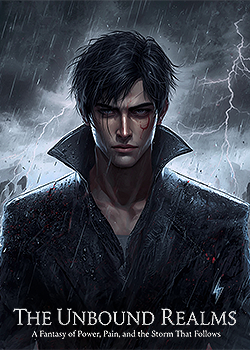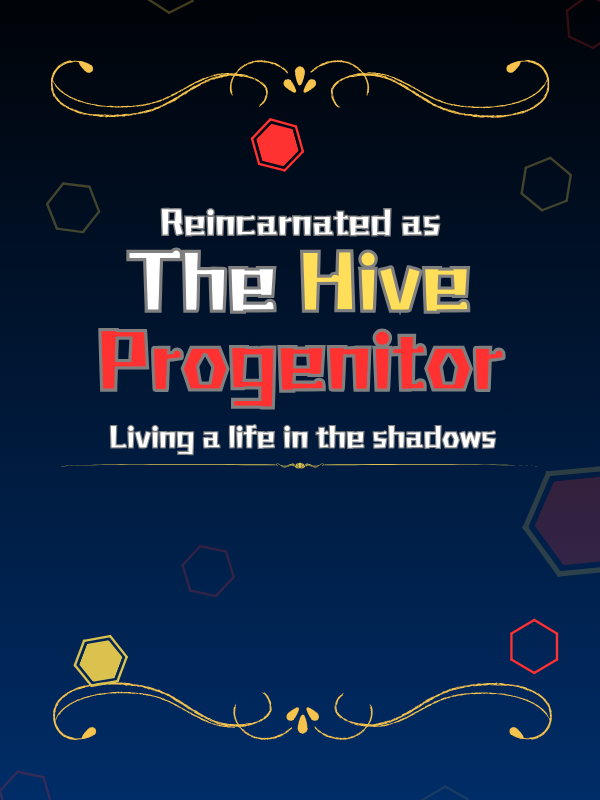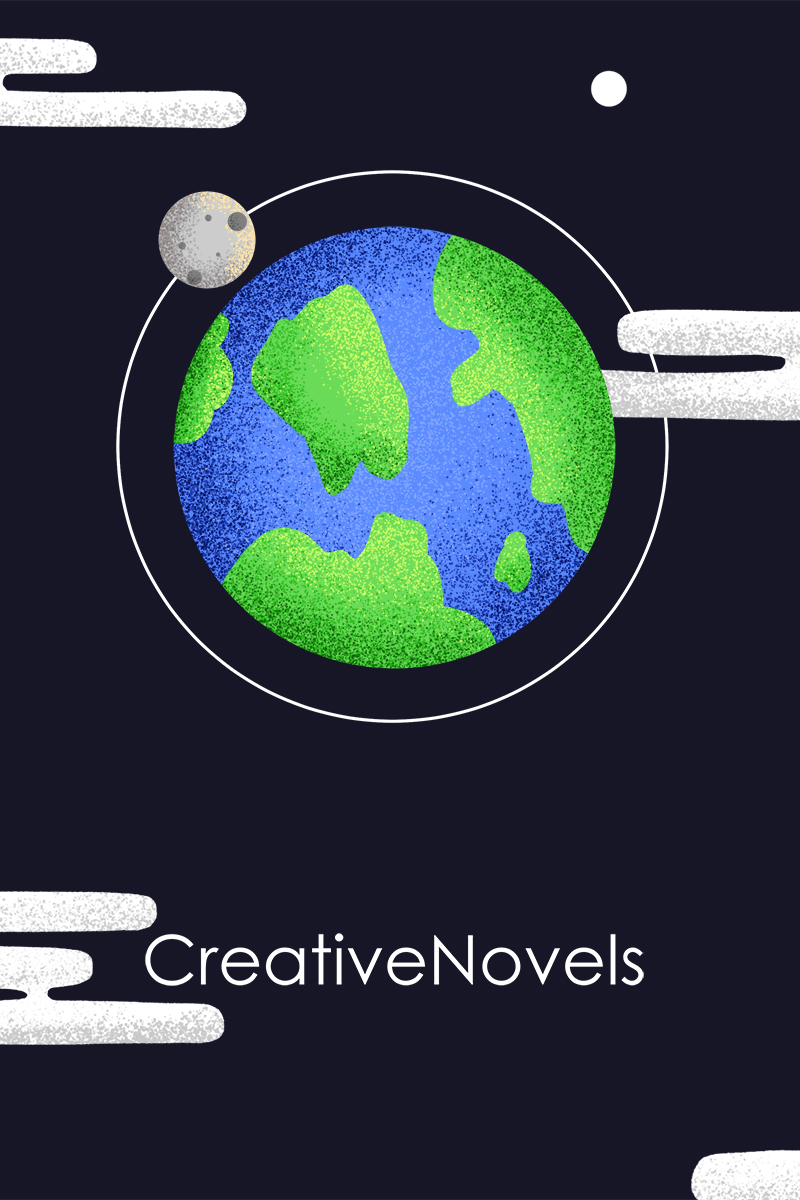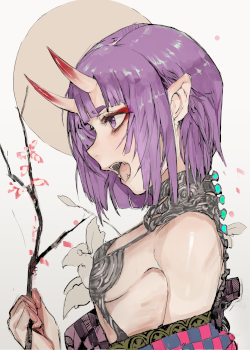.
As we began passing empty doorways in the corridor, Brigitte couldn’t stop herself from investigating, but she was profoundly disappointed in the place by the time she investigated the third room.
The rooms really were entirely empty. At first, I thought that even the doors were missing, until I remembered that they slid out of the door frame rather than swinging. They had all simply been left in the open position. Once I remembered how to close them, I tried it, only to find it wasn’t operational. The magic circuit controlling it had vanished at some point.
“What was this place?” Brigitte wondered.
Maybe it was because I was in this familiar place, where Senhion had stood, sometimes physically and sometimes using [Presence]. The memories of this place and its purpose tumbled forth from wherever they had been hiding.
“It was where Elders and their Servants worked to stabilize the climate. It was incredibly complex work, and required thousands of people supervising millions of devices, so the complex had to be huge. The rooms we’ve seen so far don’t have closets or toilets or other living necessities, so they were probably either records rooms, storage rooms or bays for magic engines.”
She was staring at me blankly. I completed what I was saying anyway. “This location was the headquarters, but there were dozens of other facilities like it, doing the same work.”
After a long silence as we walked, she asked, “What does ‘Stabilize the climate’ mean?”
The concept of massive global climate change was very far beyond the world of a fox girl villager of Orestania. I had to think about how to explain it.
“A long time ago, long before the time of any stories or legends you’ve heard, a year-round winter fell over the entire world. It was completely wrapped in ice. The only mortals and living things that survived were those that the supervisors– the gods– brought down into these caverns. We Elders were brought to this world to keep them alive and also to melt the ice and restore warmth to the world. That was… probably a much, much larger job than you can imagine. And once spring returned, we had to…”
I sighed. “This is hard to explain. Just because it was warm again didn’t mean it wouldn’t suddenly freeze again. And we also had the danger that the whole world could turn from arctic freeze into scorching hot desert… or even worse.”
Senhion knew about the possibility of runaway climate disasters like the one that ended any chance for life on Venus. It had been very possible for Huade to go the same direction if they made a mistake while inducing the rapid thaw. When she first arrived in the Mortal Realm, the supervisors were still debating whether to accelerate the return of Huade to livability and just give up and transport the remaining mortals to another planet entirely. The underworld in which the few survivors currently lived wouldn’t be sufficient to preserve them for the hundred thousand years that a natural recovery was going to take.
Huade has a sister planet, Suri, an ‘eyeball planet’ that is gravitationally locked with the Sun, always showing the same side to it. It has a hellscape facing sunward, a frozen hades facing away, and a ring of livable land and water at the green ‘equator’ that marks the division between the bright side and the dark side. It has oxygen-making life and oxygen-breathing life, just like Huade or Earth, but that life has yet to evolve into multicellular life. It’s a biosphere made of bacterial slime.
It would be easier and safer to convert that place and its atmosphere to something Huadean life could survive than to go through the complex task of fixing what was wrong with Huade and making it livable again. But in the end, the supervisors decided to leave Suri alone and risk the dangers involved in saving Huade.
“So all the different kinds of mortals were all crammed together in a place like this?” Brigitte wondered.
“There’s many such caverns, Miss Brigitte. There’s easily a hundred caverns the size of the one behind us, just in Ilim Below, and this isn’t the only subterranean complex. Most of them were used for preserving the animal and plant species, with water caverns for freshwater and tropical ocean species. Mortals only lived in a few of them. We didn’t need very much space for them, because there weren’t many mortals still alive by the time the original gods had been dismissed and the gods that you know arrived.”
Her brow was furrowed deep. Yeah, this was nothing like what her village priest taught her. In that version, Gaia built the land and Eurybia formed the sea, and they filled their respective domains with life, in their tooth-and-nail competition over the love of their mutual husband Oranos. The other nine supervisors also show up in Ostish mythology, but only in minor stories, as children of the Big Three, probably because the real entities supervised other parts of the world. Nowhere in those stories was a previous set of gods ever mentioned.
“Anyway, it wasn’t ‘all the different kinds of mortals’. There was only one kind of mortal back then.”
“Huh?” Brigitte’s eyes glazed a little.
“If you go back far enough, all your ancestors are humans, Miss Brigitte. Unless you have fairy or monster blood, in which case you also have some Elder ancestors.”
“Then where did the rest of us come from?” she demanded.
“I just told you,” I said, puzzled. “Humans.”
Maybe it had been too bizarre for her to hear, the first time.
“Humans created the rest of us?”
“Humans became you,” I corrected. “Or more accurately, they turned their children into you. The first generation of halflings and fox beastkins were born to human mothers. It’s the same for all the other mortal species.”
I went on to tell her the story in detail, pausing only when we came to cross-corridors and had to assess whether any danger lurked in them before passing them.
It had been during the golden age that had followed the internment of mortals in the subterranean world. While underground, humans had grown from the primitive hunter-gatherers who were hardly noticed by the old supervisors into an educated, scientifically advanced race. Upon emerging from their holes in the ground to populate the surface, just like the first people in Pueblo myth, they constructed a beautiful civilization full of wonders, in hopes of achieving the same sophistication as the Elders and those lucky few mortals who became Servants.
Maybe I was wrong to tell her all this. It was a history that this world had completely forgotten, with the exception of older fairies like Oberon. But I had already opened my stupid mouth, so I continued.
Resenting the inferiority they perceived in themselves when comparing themselves to Elders, they sought to give their children advantages. Some groups simply made better human children, but other groups had different ideas, seeking to borrow from beasts so they could fade into the wilderness, or seeking to escape into the sea as merrow or into the great plains as nomadic centaurs, parting from the civilization that came from the Elders. Those groups were ultimately had the same goal, seeking independence from Elder supervision.
One group saw all of it as folly, and doubled down on their modest nature, shrinking to become the halflings who could dwell simply and peacefully in remote communities. Other groups sought to broaden their potential and abilities under Elder leadership, becoming elves and dwarves, and in other cases, simply improved humans.
We were almost all the way to the end of the corridor now. I could feel in my fairy sense that the black rectangle was an opening into a large open space, but it was too soon to be the cavern we were headed for.
“But there were humans who could never be satisfied, even with the elves and dwarves, and in the end, they…”
I chopped off as the memory bubbled forth from Senhion’s past, the record of the rest of the story.
The part that I had watched in horror as it happened, all those thousands of years ago, when the mortal children finally took their folly too far.
My eyes filled with moisture and I stopped walking.
“My Lady?” Brigitte asked in confusion. She stopped as well, and after a bit, the outrider also paused to wait for me.
I just stared at the ceiling, fighting back the tears.
Fairies and vampires and the other descendents of the Elders had a reason that they tended to disparage humans. So did the elves and dwarves. They had seen the ultimate results of human greed in the human community that discovered the special mana that formed in remnant souls that never received the purification necessary to cleanse them of their anger and resentment. The souls that became gidim, corrupted spirits.
“Lady Tiana?”
We Elders had always taught the mortals to cultivate their souls so that they would climb to higher existences in their next lives. Samsara was only a wheel for those who wasted their lives on temporal cares or sidetracked themselves with the fallacy of heaping merit for salvation. For those who laid aside avarice and animosity, and instead fostered wisdom and grew their souls, Samsara was a ladder upon which mortals could climb to immortality through successive reincarnation.
But that group of humans had seen demonic mana as the key to making themselves as powerful as Elders. They believed they could have immortality now, in this world and this life. Not willing to simply improve the next generation, they found a way to infuse themselves with it.
Grandmother had said it to me. The demons are a separate matter. They are humanity’s sin.
Demons were humans, after all.
“My Lady!” Brigitte all but yelled.
I pulled in a deep breath and let it out.
I blinked my eyes clear and simply said, “If we had understood what they were creating when they first started, we could have put a stop to it, and a lot of very sad things would have been different. I’ll leave it at that.”
When I lowered my gaze from the ceiling, Brigitte was looking at me with a slightly tipped head and a very concerned stare.
“Sorry,” I apologized. “I suddenly remembered… the events I was talking about. I lived through it, you know.”
She nodded, still staring at me with a deep wrinkle in her brow.
I breathed in again and sent Senhion back into the back of my mind where she belonged, then forced my brain back to the present.
“I’m alright. Let’s not talk about this anymore,” I suggested. “We have a princess to find.”
“That’s right,” she said, as if happy to hear that I still remembered the mission.
At last we reached the end of the corridor, a third of the way through the complex. I had already grasped the vast space ahead of us in my mind, but it was too dark to see, even with the light emitting from the hallway we had just emerged out of. I touched the control square on the wall.
Not surprisingly, only the immediate area vicinity lit up, but we both had excellent night vision, so it provided enough light to see the rest. We were at a tee intersection with a balcony hallway wrapping an enormous space, thirty paces on a side. A solid half-wall formed a ‘railing’ between us and open air. Above us, the ceiling arched into a huge cloister vault, starting from barely above our heads. This was the topmost balcony. There was also a balcony for each of the eight floors below us, although only the top five floors were above water.
Brigitte and I stared in silence at the enormous room. I could understand why she was silent. It was tiny in comparison to the massive cavern behind us, but its symmetric architectural nature gave it a different kind of immensity, a bit like visiting the Pantheon or the Hagia Sophia.
I had a different reason, because I could picture this place lit up. Rather than empty air, the middle of this vast space was filled with a live 3D image of Huade, as transmitted from the satellite network in synchronous orbit above the planet. On the balconies below ours, Servant operators were manning their workstations, tracking all the minutiae of managing the intimate details required to assume direct control of an atmosphere, hydrosphere and biosphere.
The satellites and the image were long gone now, of course. Even the desks manned by those ancient technicians were gone. It was just an empty space now. To see this, immediately after having remembered the reasons it was lost… it had a deep impact on me.
The guide had turned and proceeded northward along the balcony. Brigitte broke the silence. “I guess we should follow.”
“Yeah,” I agreed. I didn’t feel like saying anything else.








